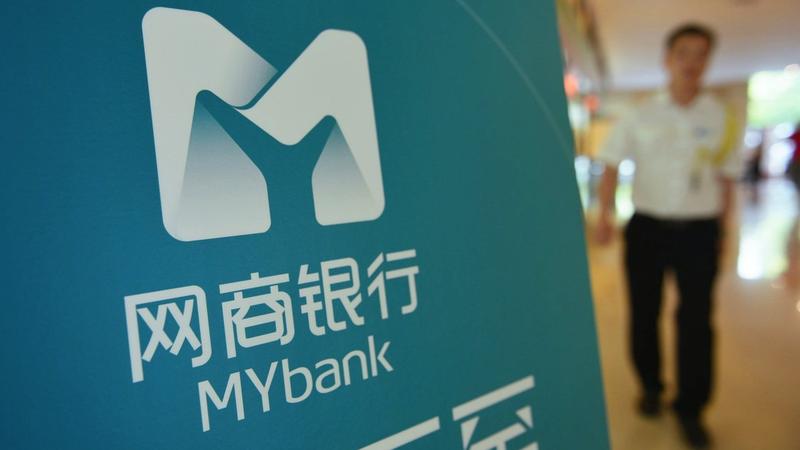Measures include expense reduction, financial and logistics support, data flow information sharing and health protection
 JD employees operate a driverless package delivery vehicle in Wuhan, capital of Central China's Hubei province, on Feb 7, 2020. (PHOTO BY ZHU XINGXIN / CHINA DAILY)
JD employees operate a driverless package delivery vehicle in Wuhan, capital of Central China's Hubei province, on Feb 7, 2020. (PHOTO BY ZHU XINGXIN / CHINA DAILY)
Chinese internet companies are reducing or scrapping commission fees, extending payment deadlines and providing loans with low interest rates for merchants on their platforms to help the latter alleviate pressure caused by the difficult situation resulting from the novel coronavirus outbreak.
Chinese e-commerce giant JD has rolled out 11 subsidy support measures for 250,000 merchants on its platform. These measures include expense reduction, financial and logistics support, data flow support, technical support and health protection.
ALSO READ: The virus onslaught: Despair and hope
For the merchants in Hubei province, the epicenter of the epidemic, JD will waive one month of fees, provide a maximum insurance premium of 300,000 yuan (US$43,000) and give their products more traffic data support on its online marketplaces. Additionally, one month of free operations will be offered to these merchants.
JD Health, the health and medical unit of JD, will provide free doctor consultation services for all enterprise employees across the nation
JD Health, the health and medical unit of JD, will provide free doctor consultation services for all enterprise employees across the nation. JD Digits will also launch an interest fee reduction and delayed repayment policy.
JD Logistics will provide one-on-one customer service for new merchants who use JD's fulfillment services and 48-hour rapid contract signing, enabling them to get up and running on the platform hassle-free.
Alibaba Group said all of the merchants on Tmall, its business-to-customer site, will be waived of service fees for the first half of this year. For select vendors from Hubei province, Tmall will help manage virtual stores' operations for three months free of charge.
MYbank, an online private commercial bank under Ant Financial, announced a series of measures aimed at helping small business owners overcome the economic impact of the epidemic, especially those in Hubei province.
It will offer 20 billion yuan worth of special loans to Taobao and Tmall merchants.
 A pedestrian walks past an advertisement for Internet bank MYbank owned by Ant Financial Services Group, an affiliate of Chinese e-commerce giant Alibaba Group, in Hangzhou city, East China's Zhejiang province, on June 25, 2015. (PHOTO / IC)
A pedestrian walks past an advertisement for Internet bank MYbank owned by Ant Financial Services Group, an affiliate of Chinese e-commerce giant Alibaba Group, in Hangzhou city, East China's Zhejiang province, on June 25, 2015. (PHOTO / IC)
Starting on Feb 2, MYbank reduced interest rates of business loans by 10 percent for 1.8 million Hubei small business owners, including 1.5 million mom-and-pop shop owners and 300,000 medical supply dealers. Small businesses whose owners are infected by the coronavirus can also contact MYbank through its hotline to apply for interest exemptions.
Small and medium-sized enterprises are a fundamental and crucial part of China's real economy, and these measures are aimed at ensuring these businesses can cope with and survive these challenging times, MYbank said.
Internet search engine giant Baidu Inc has opened 240 artificial intelligence technologies and offered free access to its internet of things platforms for one year, as well as provided remote office services to SMEs in Wuhan free of charge.
Chinese commercial giant Suning.com Co announced a string of preferential measures to ease the pressure of retailers on its platform. This includes exempting the platform usage fees and commission fees on 308 epidemic prevention and control products, such as masks and disinfectant and commodities involving people's basic livelihood, from February to March.
"Goods and material support must be given top priority during difficult times," said Suning Chairman Zhang Jindong, adding the group will continue to offer assistance to their partner merchants, especially small-and medium-sized enterprises to minimize damage, as they are playing a vital role in creating jobs in China.
 Photo taken on Aug 11, 2017 shows a logistics base of Suning in Nanjing, capital city of east China's Jiangsu Province. (PHOTO / XINHUA)
Photo taken on Aug 11, 2017 shows a logistics base of Suning in Nanjing, capital city of east China's Jiangsu Province. (PHOTO / XINHUA)
Suning Logistics has offered a 50 percent discount on delivery charges for retailers who sell such products. It will also lower the loan interest rates by 20 percent and grant small loans on credit for them.
Brands partnered with Suning's brick-and-mortar retailing plazas will also be exempted from rent for the period between Jan 25 and Feb 28, Suning Plaza Commercial Management said.
Chen Liteng, an analyst from the Internet Economy Research Institute of China E-commerce Research, said the merchants are important partners of the platforms so their current difficulties and losses will have a negative impact on the platform operators.
"The capital and technology support will help enterprises tide over the difficulties, which is also a future investment that internet platforms have made by themselves," Chen said.
After the epidemic, the partnership between merchants and platforms will be more solid and conducive to their long-term cooperation and is a win-win development, Chen noted.
In addition, Alibaba's local services company said it has decided to waive commission fees for merchants listed on its lifestyle services platform Koubei since restaurants, supermarkets and convenience stores have encountered some difficulties during the coronavirus outbreak.
The commission fees will be suspended for merchants until Feb 29, while merchants in Wuhan, the capital of Central China's Hubei province, will have their fees exempted until March 31.
Merchants that have paid annual fees for advertisements on Koubei will get a three-month free extension. The company will also step up efforts to offer loans to the merchants who are facing a cash crunch.
It will also provide free online health consultation services for merchants across the nation, and grant pneumonia-related insurance for those firms and their employees in Wuhan. Alibaba formed its local services company in 2018 by merging food delivery platform Ele.me and lifestyle services firm Koubei.
Chinese on-demand service platform Meituan-Dianping has also launched measures to help their merchants cope with the financial complications caused by the epidemic outbreak.
It said that since Feb 1, the merchants which provide food delivery services in Wuhan will have all commission fees waived for one month. The businesses offering in-store services including dining and entertaining in Wuhan will also enjoy a one-month commission fee exemption.
It has set up a special fund of 350 million yuan to help the merchants in the country to recover their normal operations, offering online procurement services for small-and medium-sized restaurant owners who are facing a shortage of food materials.
It offered no less than 10 billion yuan in small and mirco-loans with preferential interest rates for merchants in the nation by collaborating with over 10 banks, as well as more than 800 free online training courses for merchants on epidemic control, food safety and restaurant management, the company said.
Meituan-Dianping has offered 10 million yuan in loans respectively to Yunhaiyao, the nation's leading Yunnan province ethnic cuisine chain of restaurants, and Zhoumapo, a Fuzhou, Fujian province-based catering group, in cooperation with China Everbright Bank and Jiangsu Bank.
The company is likewise providing free insurance products for the merchants in Wuhan and their employees. If they are infected with the coronavirus and unfortunately perish, they will each receive a 300,000 yuan special allowance.
Jia Guolong, chairman and founder of top restaurant chain Xibei, said more than 400 of its restaurants in over 60 cities have been closed. They have lost about 700 to 800 million yuan in the latest month.
Separately, online shared accommodation booking platform Airbnb said it will invest $10 million to support its hosts in the next few years.
READ MORE: Jack Ma pledges US$14.5 million to help fight coronavirus
Investments and action plans are being designed to help hosts who suffered financial losses due to canceled reservations and fees, create a reward program for hosts that have actively supported the community during the outbreak, as well as programs to train hosts and upgrade their listings.
"In such a challenging moment, we stand firmly with our hosts, guests, partners and employees," said Peng Tao, president of Airbnb China.
"We have mapped out key initiatives to support our community and are committed to harnessing the positive power of travel and people-to-people connections to help boost the tourism sector and overcome the negative aftermath of this health emergency."


